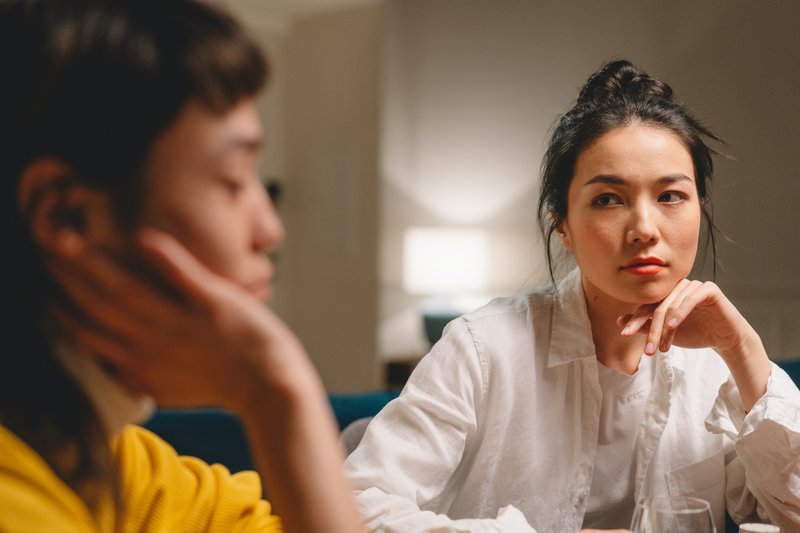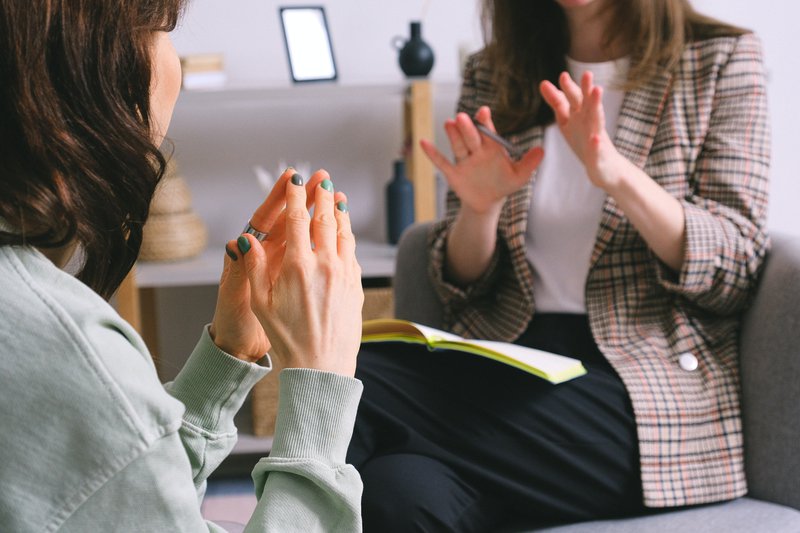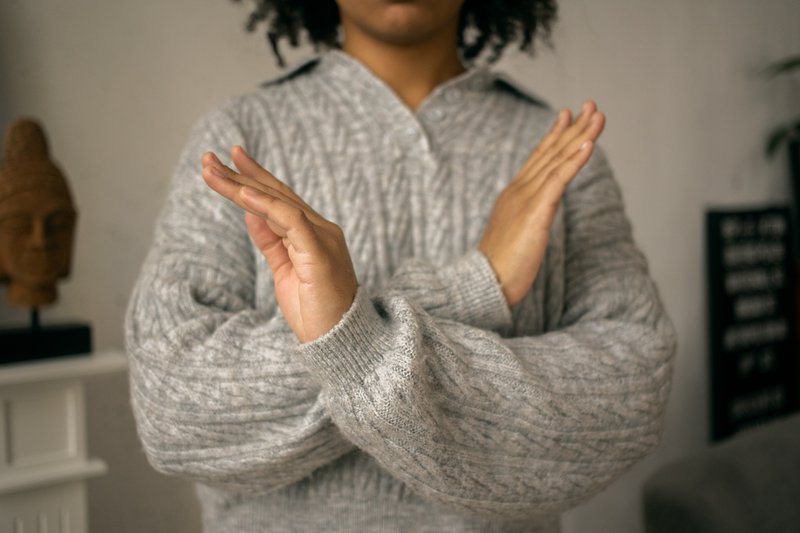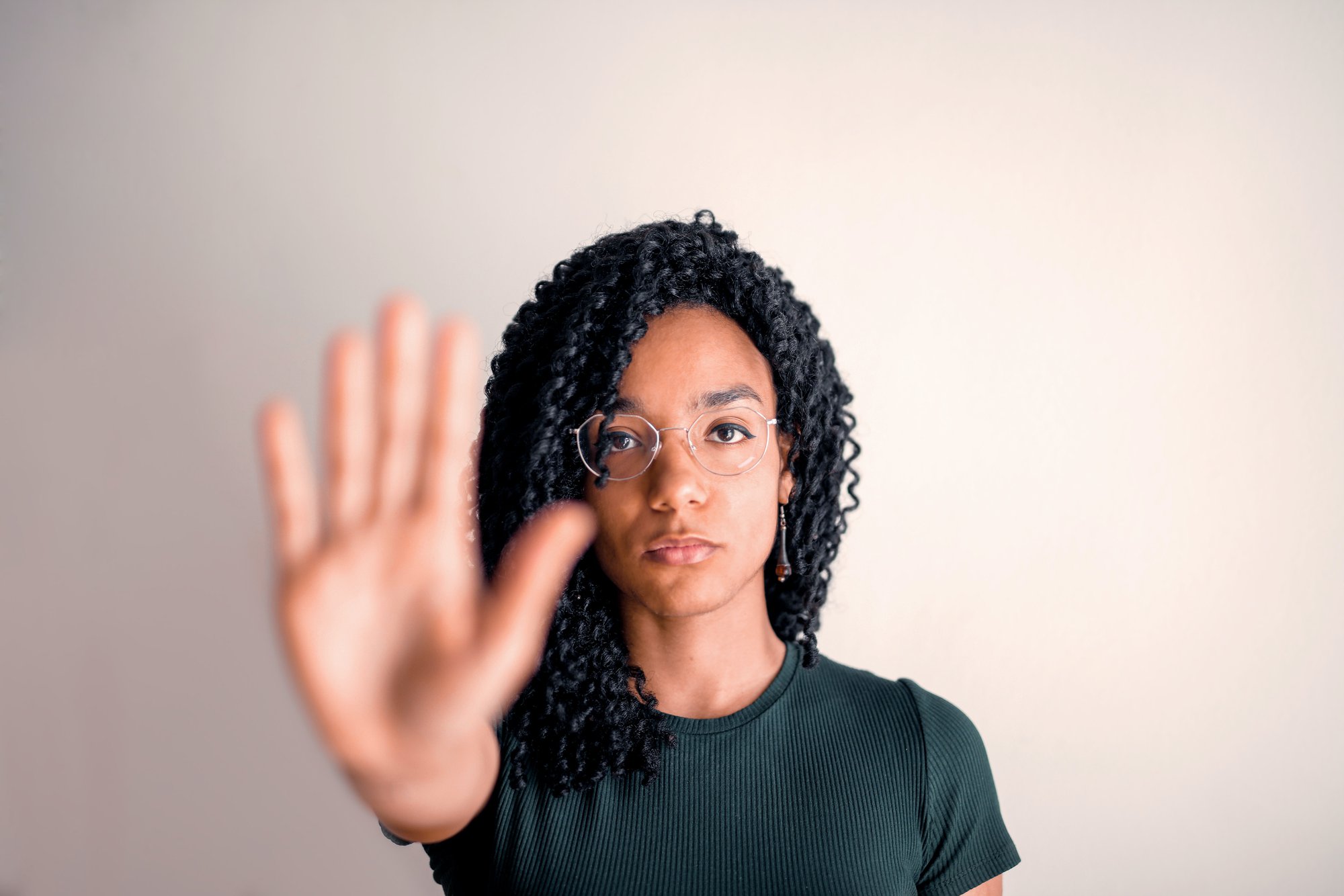Let’s unpack the expression
Have you ever wondered where the expression, “resting bitch face” came from? I’ve been thinking about it lately and I thought I’d unpack the idea.
Most notably, “resting bitch face” is only applied to women. It signifies a woman whose face falls into an expression that is considered unpleasant to those who might be looking at her. Interestingly, a man with a similar serious or frowning expression at rest is often seen as someone deep, serious, or intellectual. The woman is simply seen as a bitch.
The expression “resting bitch face” bothers me because it implies that a woman must at all times strive to present herself to the world—and in particular, to the male gaze—as pleasant, friendly, and non-threatening. If her expression is sour, serious, or angry then without a doubt, she’s a bitch.

Are women still expected to constantly make an effort to please men?
It bothers me that in 2022, women are still expected to make a constant effort be pleasing to the male gaze. Even when our faces are at rest, they have to appear pleasant and appealing. We are still judged by whether or not a man would be pleased or displeased by our facial expressions. If we aren’t making an effort to please, the assumption is that we’re a bitch.
So, what is a bitch? In my mind, it’s a woman who’s not nice, according to the male point of view. She’s not pleasing, accommodating or ingratiating. She isn’t going out of her way to make the men around her feel comfortable. She isn’t trying, all the time, to make the men around her feel good. She hasn’t plastered on a facial expression that says, “I’m nice. I’m approachable. I’m here to put you at ease.”
The expression, “resting bitch face” is used on women as a way of criticizing them for not making more of an effort to appear pleasing to the male gaze. As if we should spend our busy days hyper-aware of the possibility that we might offend some poor man by not always being smiley-faced or looking sweet.
My twenty-three-year-old assistant told me that before masks were the norm, she was always being stopped in the street by strangers who would ask her, “What’s wrong? Why aren’t you smiling?” These strangers thought they had a right to tell her that as an attractive young woman, she “should” be walking around with a smile on her face. She found that offensive, and I agree with her.

My patient believes that how other people see her is what matters
I have a patient who always defines herself by how other people see her. When I point out that yet another person has been behaving abusively toward her, she invariably tells me that, “they don’t think they’re being abusive. They say that I’m the one who hurt them.”
In her mind, how other people see her is more important than how she sees herself. Naturally, she is constantly being mistreated and then minimizing her unhappiness by rationalizing to herself—and to me, her therapist—that the other person’s point of view is the only one that counts.
Saying that a woman has a “resting bitch face” is implying that she’s giving offense by refusing to conform to an expectation—that of always presenting herself in a way that would please a man. But why should a woman have to do that? Why is it necessary to always conform to male expectations of how we should walk through the world?

We women don’t think about the sexist traps we fall into
As women, we don’t spend enough time thinking about the sexist traps that we fall into. We don’t consider, nearly enough, how we’re constantly trying to be pleasing to men, or what is underlying all this effort. We don’t think about how our value as women, and as people, is much too wrapped up in how men see us.
If we’re seen as having a “resting bitch face” our value is automatically lowered, because by not pleasing the men around us, we become defined as women who aren’t “good enough.” If we’re not constantly making sure to look pleasing to men, we’re somehow deficient as women: unattractive, undesirable, unacceptable.
If a man is walking around with a frown on his face, no-one sees him as less of a man. Most people automatically assume that he’s thinking deeply or trying to solve an important problem. Or, if he’s a man of colour, perhaps some people assume that he’s up to some kind of trouble—but that’s a story for another article.
In general, a man can have a serious expression on his face and no-one would call him the male equivalent of a bitch. Even the fact that there is no male equivalent of the word, bitch, is telling. It’s an insult just for women—women who don’t try their best to please men!

Men aren’t expected to always present as pleasing to women
Men aren’t expected to present themselves as acceptable to the women around them, and their value doesn’t rise or fall, depending on whether the women around them see their expressions as pleasing or displeasing. A man, in general, doesn’t think about the expression on his face. His face is his face, and whatever it reflects is just there. It’s no big deal. Why can’t it be the same for a woman?
I propose that we eliminate the expression, “resting bitch face” from our vocabulary. Just like some other words and phrases that we no longer use because they’re racist or sexist, demeaning or derogatory, we should banish this expression from our conversations.
A woman should be free to have whatever expression on her face she wants, and if her resting features are serious, angry, or frowning, who cares? Her facial expression is not a reflection of her value as a woman or as a person, and she shouldn’t constantly have to make an effort to change her expression in order to please some random men.
Women’s liberation should include the freedom to have whatever expression we want on our faces; in fact, to not have to think about how our face happens to look at any given moment. Real liberation is walking through our lives, independent of the male gaze. It’s knowing that our value as women is intrinsic—that it never has depended on the male gaze and that it never will.
______
Sign up here for my free biweekly wellness newsletter that brings you fresh, thought-provoking content.
Subscribe to my YouTube Channel where you’ll learn simple tips for taking the best care of yourself and your loved ones.
Tune in to my Ruthless Compassion Podcast where I go in-depth about topics like mental health, trauma, and loneliness.



